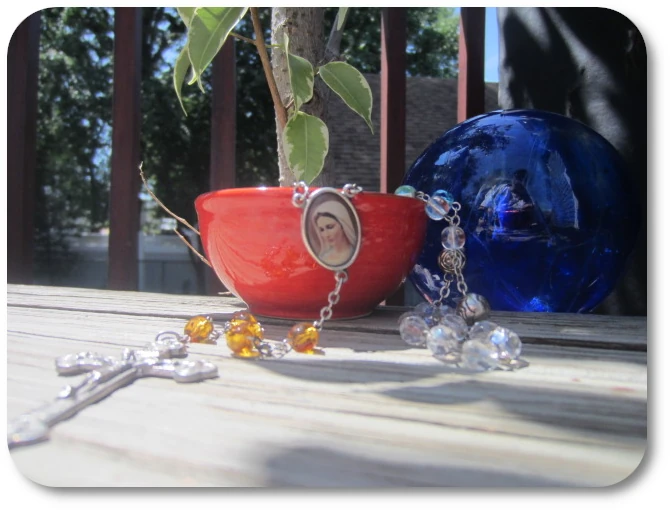- Rosary
- spiritual meditation
- Contemplative Arts
- A Piece of Bone
A Piece of Bone
Stone 08
A Piece of Bone
"It rises like a piece of bone,
a thought between the mind and the grass."
Laura Pugno
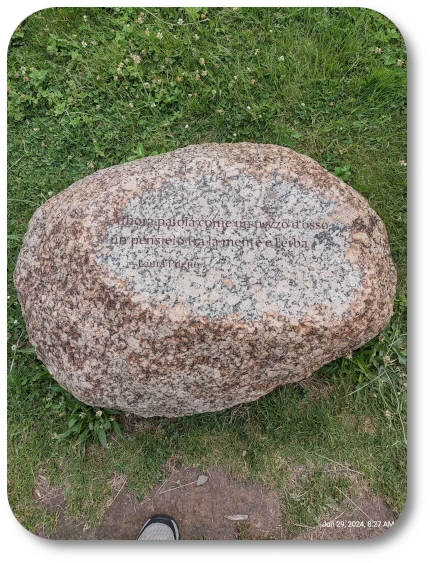
Here I am in Santiago de Compostela taking an early morning walk to learn the lay of the land. Actually, we were on our way to Saint James Cathedral but of course lost our way.
With that we fall upon this meditation garden with poems written I different size stones. This stone catches my attention because it is written in the beautiful language of Iltalian.
My father was an immigrant from Sicily and my mother's parent from Italy. Together as children we heard many different words and how to say them, in Italian or Sicilian. Lots of laughs.
Let me see if I can break down this poem and understanding of it. "A piece of bone" would suggest something solid like this stone.
A bone would also be the last to be left of a body after the rest has decayed. This may mean to me something that will last.
The "grass" to me continues to grow, as life and my spiritual growth on this journey of life. But grass can change with wind, rain, snow or even drought. Very similar to my life constantly changing.
We are a part of nature as this stone and the grass. The bone indicating us holding onto past experiences and the grass a living breathing environment that influences my thoughts and emotions.
I do feel like I am part of this garden I have fell upon, nothing is ever a coincidence for me.
The garden invites us to pause, think deeply, and find clarity amid the chaos of life.
Laura Pugno - Author
Laura Pugno is a celebrated Italian poet, novelist, and translator, hailing from Rome, where she was born on April 30, 1970. Her literary talents extend across various genres, and she's recognized for her unique voice in contemporary Italian literature. Pugno has translated numerous works from English and French, showcasing her linguistic prowess and passion for bringing diverse stories to an Italian readership.
In the realm of poetry and fiction, her work often delves into themes of nature, human experience, and the spiritual realm. Her novel "Sirene," published in 2007, garnered critical acclaim and won the prestigious Premio Libro del Mare. Another notable work, "La ragazza selvaggia" from 2016, was a finalist for the Premio Campiello, highlighting her continued impact on the literary scene.
Pugno's poetry is particularly known for its evocative imagery and profound exploration of the connections between the physical and the spiritual, resonating deeply with readers who seek both beauty and meaning in their literary journeys.
A Piece of Bone
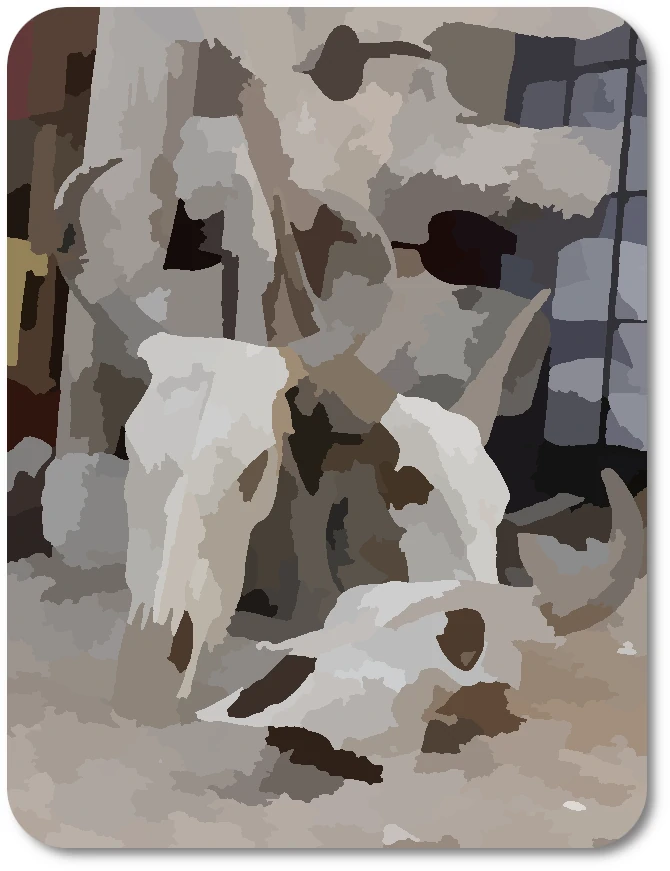
The phrase "a piece of bone" can indeed symbolize the stone in the context of the poem and its setting in a meditation garden. Both the bone and the stone share qualities of permanence and endurance, representing the remnants of life and the weight of history.
In a meditation garden, stones often serve as anchors, grounding us in the present moment. They can symbolize stability and strength, much like bones do in the human body. Just as bones carry the stories of our physical existence, stones can embody the stories of the earth, carrying the weight of time and the experiences of nature itself.
Furthermore, the stone can represent a connection to the past, much like a bone signifies memories and experiences. In this sense, the stone in the garden may remind us of the layers of history that shape our lives. It invites contemplation about our own experiences and how they inform our thoughts and actions.
Additionally, both the stone and the bone evoke a sense of fragility despite their strength. While stones are hard and seemingly unbreakable, they can be weathered and worn over time, just as bones can be fragile despite their toughness. This duality highlights the transient nature of existence, encouraging reflection on the impermanence of life.
In summary, viewing "a piece of bone" as a metaphor for the stone enriches the poem's meaning, suggesting a deep connection between our inner experiences and the external world. It emphasizes the importance of grounding ourselves in nature while acknowledging the weight of our past, ultimately inviting us to find balance and peace in the present moment.
Grass and Inner Thoughts
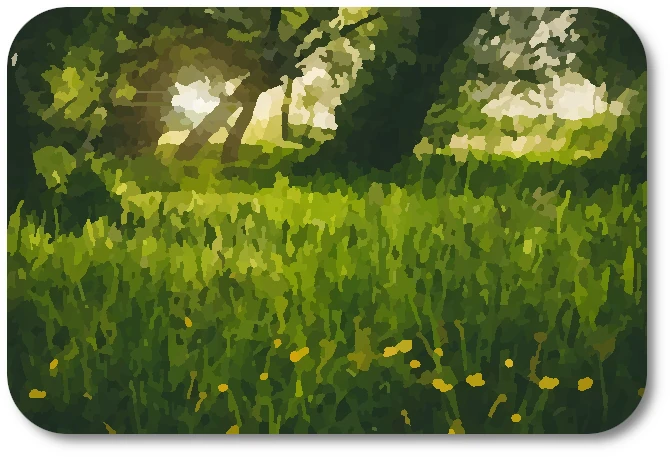 |
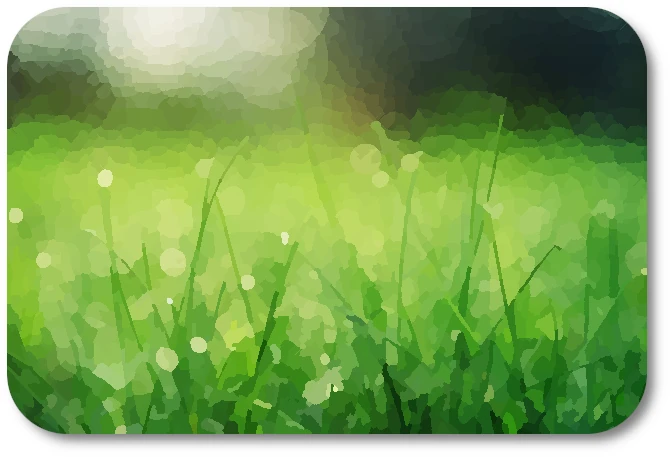 |
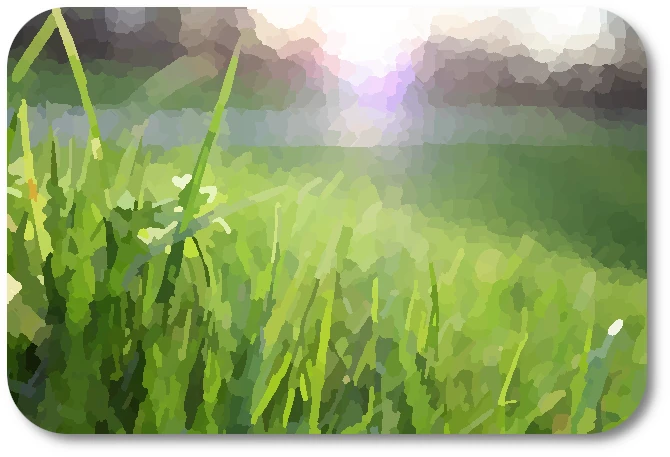 |
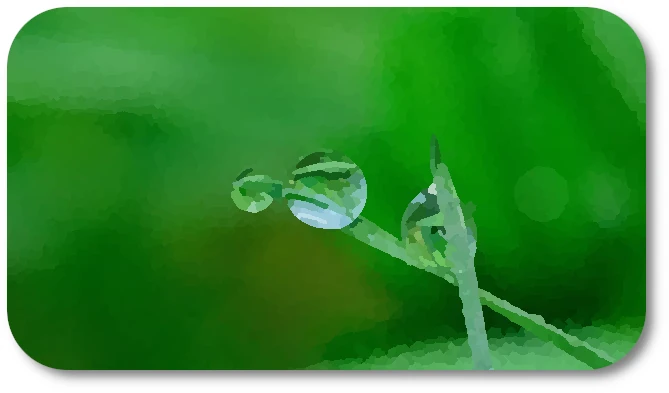
The connection between our inner thoughts and the external world, especially represented by grass, is a beautiful reminder of how we are all part of a larger creation.
Our thoughts can often feel heavy and complex, filled with worries, dreams, and memories.
When we take a moment to step outside and appreciate the grass beneath our feet or the trees swaying above us, we can find comfort and inspiration.
Nature has a way of grounding us, reminding us that we are part of something much bigger than ourselves. This connection can help us let go of our anxieties and embrace a sense of calm. It’s like God is inviting us to pause, breathe, and reflect on the beauty that surrounds us, encouraging us to find joy in the present moment.
Our inner thoughts can be influenced by the world around us.
When we see the vibrant green of the grass or feel the warmth of the sun, it can spark feelings of gratitude and peace within us.
Nature encourages us to be mindful and to appreciate the little things in life. Just as grass grows and changes with the seasons, our thoughts and feelings can also evolve.
Poem and Annunciation
Think about the Annunciation, when the angel Gabriel told Mary she would have a baby, Jesus. This moment is like the poem's idea of "a thought between the mind and the grass." It’s where something divine (God's plan) enters everyday life (Mary's world).
Just like the poem describes something rising, this event shows how an extraordinary message can change an ordinary life. The Annunciation is all about a sacred message becoming real in our world, reminding us that spiritual moments can happen in our daily lives.
- How do I find moments of empathy and connection in my everyday life, even when I'm facing challenges? Reflect on small acts of kindness and understanding that can make a difference in both your life and the lives of others.
- What does the image of "a thought between the mind and the grass" mean to me in terms of balancing my inner thoughts with the natural world around me? Consider how you can stay present and grounded, appreciating the simple beauty of nature while also nurturing your inner life.
- How can the idea of "it rises like a piece of bone" help me understand the importance of facing and embracing the realities of life, including its hardships? Think about how acknowledging and accepting life's difficulties can lead to personal growth and a deeper spiritual understanding.
Reflecting on these questions might bring more clarity to your spiritual journey and how you relate to the themes in the poem.
Reflecting the Eighth Station
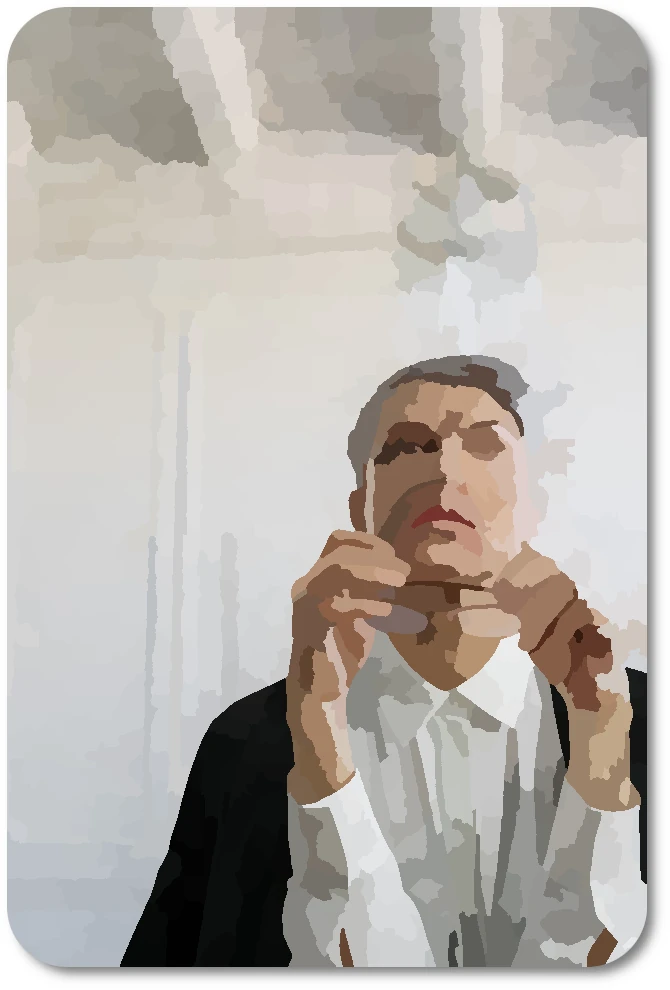
Consider the Eighth Station of the Cross: Jesus meets the women of Jerusalem. In this station, Jesus is carrying His cross and meets some women who are sad for Him. Even though Jesus is suffering, He takes a moment to comfort these women.
Now, how does this connect to the poem?
"It rises like a piece of bone": This can remind us of the hard times and suffering that we all go through in life, similar to how Jesus was suffering while carrying the cross.
"A thought between the mind and the grass": This line can be seen as a moment of pause and connection. Just like Jesus took a moment to acknowledge and comfort the women, this line suggests finding a balance between our thoughts and the world around us. It's about being present and finding moments of kindness and connection, even when things are tough.
In simple terms, this poem and the Eighth Station, both remind us to find moments of compassion and connection, even when we're going through hard times. They both highlight the importance of empathy and being present in the world around us.
















